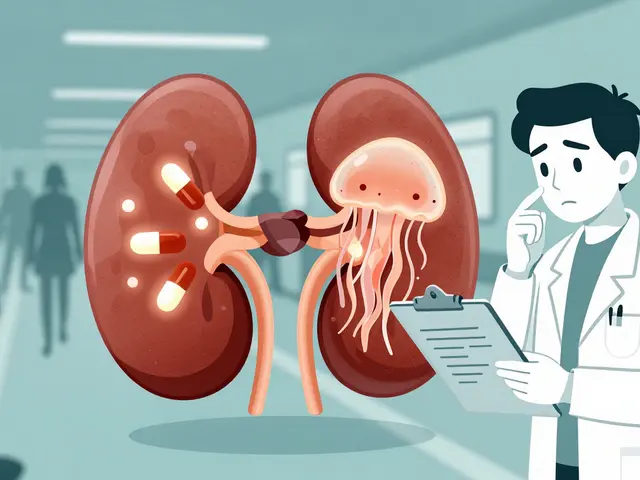Digestive Health: Simple Tips, Safe Supplements & Trusted Meds
Feeling bloated, constipated, or just off after meals? You’re not alone. Most people miss a few easy habits that keep the gut running smoothly. Below you’ll find straight‑forward actions you can add to your day, plus how to spot safe supplements and reliable medication sources.
Everyday Habits for a Happy Gut
First up, water. Drinking enough liquid (about 8 cups a day for most adults) helps fiber do its job and prevents constipation. Pair water with a diet rich in fruits, veg, and whole grains. Aim for at least 25‑30 grams of fiber daily – think berries, broccoli, oats, and beans.
Don’t forget to chew. Chewing breaks food into smaller pieces and mixes it with saliva, which starts the digestion process. Rushing meals can lead to gas and indigestion, so give yourself at least 20 minutes to eat.
Stress is a gut‑killer. When you’re anxious, the gut’s muscles tighten, leading to cramping or diarrhea. Simple breathing exercises, a short walk, or a quick yoga stretch after lunch can calm the nervous system and give your digestive tract a break.
Sleep matters too. Poor sleep disrupts the gut’s microbiome, making bloating more likely. Aim for 7‑9 hours a night and keep a regular bedtime routine.
Choosing Safe Supplements & Medications
Supplements claim to fix everything from heartburn to IBS, but not all are safe. If you’re curious about a product like the Bulbous Buttercup supplement, check for clinical evidence, dosage guidelines, and potential side effects before you buy. A quick look at reputable sites can tell you if the herb contains harmful compounds like protoanemonin.
When you need a medication – say a prescription for a gut‑related condition – use a licensed online pharmacy. Verify the site’s registration, read customer reviews, and make sure a real pharmacist validates your prescription. This protects you from counterfeit pills that could worsen digestive problems.
Keep a list of any meds you’re already taking. Some drugs, like certain antibiotics or NSAIDs, can irritate the stomach lining. If you notice new heartburn or stomach pain after starting a new pill, talk to your doctor about alternatives.
Finally, trust your gut (literally). If a supplement makes you feel shaky, causes nausea, or worsens bloating, stop it and seek professional advice. Your body often gives the first clue that something isn’t right.
Digestive health isn’t a mystery – it’s about consistent, simple choices and careful product selection. Stay hydrated, load up on fiber, manage stress, and shop smart for supplements and meds. Your gut will thank you with smoother digestion and fewer uncomfortable surprises.
Gentian Supplement: Ancient Healing Benefits & How to Use It Daily
Explore the age‑old healing powers of Gentian, its liver‑cleansing, digestive, and anti‑inflammatory benefits, and learn how to use it safely as a daily supplement.
Herbolax: Natural Herbal Remedy for Constipation and Digestion
Discover how Herbolax can support digestive health, ease constipation, and promote a natural, gentle bowel movement. All you need to understand and use Herbolax effectively.







